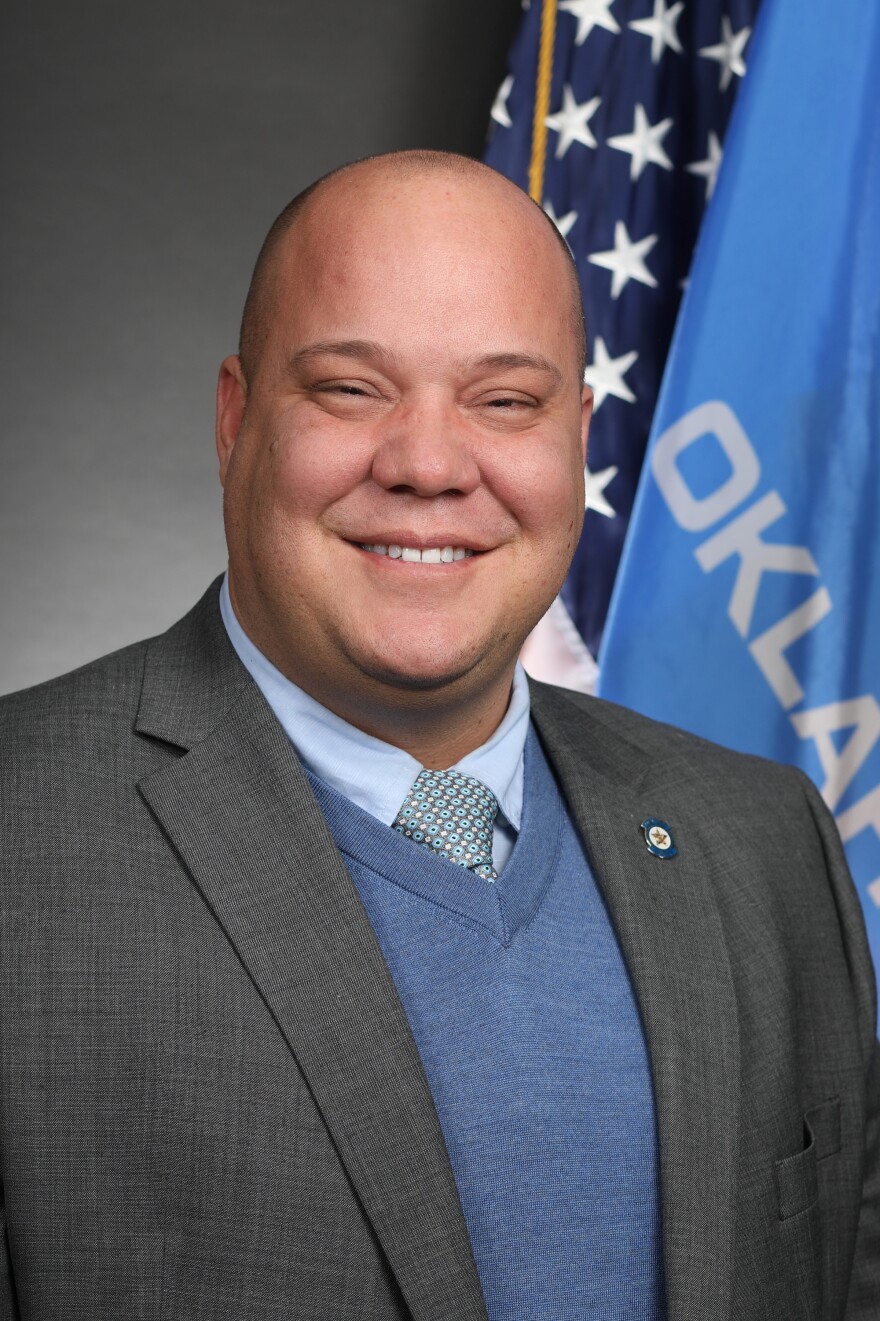Oklahoma lawmakers met this week to allocate nearly $2 billion in American Rescue Plan Act money during a special legislative session. Most of the state’s spending plan centered on upgrades to broadband internet infrastructure.
Both the House and the Senate agreed to spend $382 million on broadband development to ensure more Oklahomans have access to reliable internet. The money will go toward creating a statewide broadband plan to bring internet connectivity to 95% of households by 2027, said State Rep. Logan Phillips, a previous co-chair of the state’s Broadband Expansion Council.
“We identified this as the highest area of need for everything from economic expansion, mental health, telehealth to education,” Phillips said.
Both legislative chambers also agreed to spend an additional $167 million from the state’s ARPA Capital Project Funds, a federal grant to specifically be used for broadband development. Phillips said internet expansion will especially benefit many rural communities.

“You can't recruit or build a business in rural Oklahoma without internet,” Phillips said. “It will be the biggest economic driver that has ever happened in the last 100 years since we brought electricity out to rural Oklahoma.”
If Gov. Kevin Stitt signs off on using relief funds for broadband expansion, the state’s new Oklahoma Broadband Office will oversee how the grant money is used.
However, the Broadband Governing Board has struggled to find a director for the broadband office. They previously expected to fill the role by early August. Phillips said the challenge is that the job position is competitive, as many states are looking to fill a similar role and the current salary range being offered, $150,000-$170,000, is too low.
“At $170,000, that would be the highest paid government employee of any of our secretaries in the state of Oklahoma,” Phillips said. “So, it's extremely competitive as a government wage. But as a private sector wage, it needs to be a bit higher to recruit out of the private sector.”
Phillips said he expects the salary range to go up because there are a limited amount of people that have the government experience and background in broadband expansion to fill the role. In the meantime, Mike Fina, chairman of the broadband governing board, will act as the interim director of the broadband office.
“Because we have an interim director, we are ready to hit the ground running,” Phillips said. “As soon as a check is cut to the [broadband office], they’ll start cutting out projects.”
Phillips said he’s encouraged Fina to become the director of the broadband office, but said Fina told him he doesn’t want the position.
Lawmakers also dedicated $20 million from unallocated funds to help farmers and ranchers who have suffered from crop and livestock loss during the drought.
The $20 million is in addition to the $3 million allocated for relief during the regular legislative session that ended in May. The Emergency Drought Commission would decide how to disperse the funds to farmers and ranchers, if Stitt signs off on the bill before the special session ends Oct. 14.
When questioned on how allocating money toward the Emergency Drought Fund applies to discussions surrounding ARPA projects, Rep. Dell Kerbs, R-Shawnee, said drought relief is a critical economic issue that qualified under the special session rules.

“Some of the things [the funds will help with] would be wells, pond cleanouts, transportation of hay feed and water,” Kerbs said. “If we don't take care of our farmers, ranchers and producers, then they can't take care of us.”
Kerbs said the legislation’s recommendations to the Emergency Drought Commission consist of setting up a cost-share agreement with farmers and ranchers and setting a payment cap of $10,000.
“An example of this would be, if a project is $10,000 of cost share, let's say at 80/20, the state would cover $8,000 of that $10,000 project that qualifies,” Kerbs explained. “Then the farmer, rancher or producer would come up with the other $2,000.”
Kerbs' proposal of the drought relief bill was met with questioning from Rep. Andy Fugate, D-Oklahoma City. Fugate asked how the Emergency Drought Commission would prioritize small farmers over corporation farmers when they apply for the relief funds.
“I get what you’re asking, but with the recommendations such as the capped payment amounts, I have faith in the drought commission to do the right thing,” Kerbs said. “Whether it be a family farm or a mega farm — they are all on the same boat, and we all have the pleasure to ride on the same boat.”
This report was produced by the Oklahoma Public Media Exchange, a collaboration of public media organizations. Help support collaborative journalism by donating at the link at the top of this webpage.








